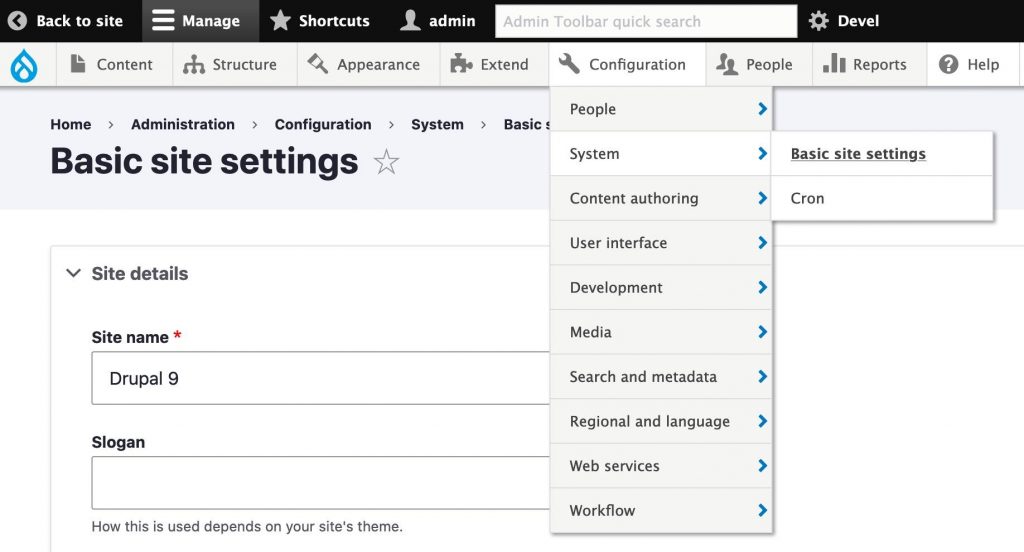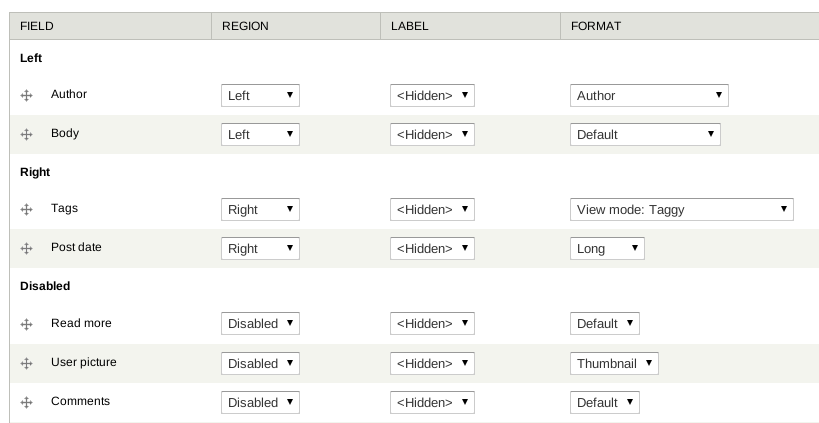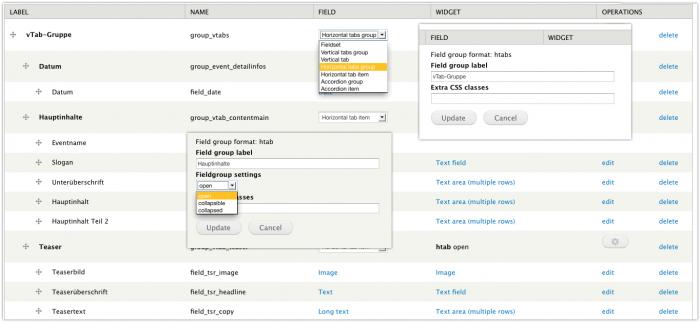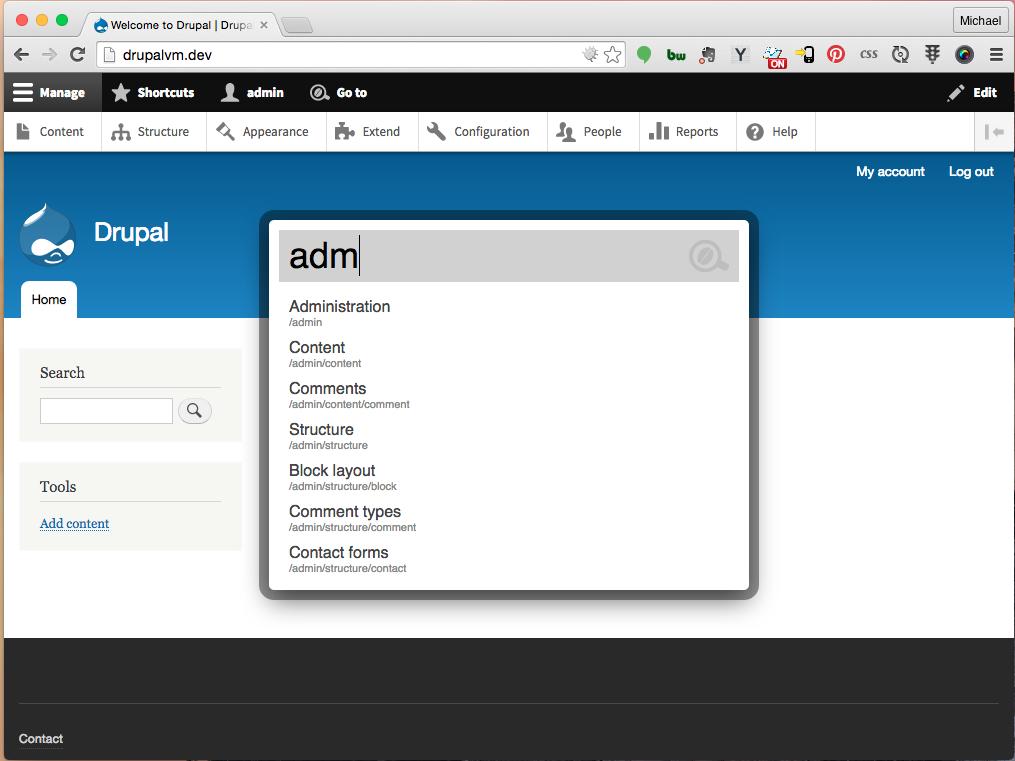Must Install Best Drupal Modules for any Website
Modules are an inseparable part of having a high-end optimized Drupal website and they can expand the functionality of your Drupal site to another higher level. Any webmaster should use modules if they want to have a well-designed website that brings a good experience for the visitors.
Modules are known to all people and they can be explained briefly as a set of codes of PHP, CSS, JavaScript etc. that work together at the same time to give you a special function.
Using modules, you can make a flexible Drupal site with interesting features that attracts more visitors. Actually there are thousands of modules available for Drupal and you can not install and try them all to see what their functions are and decide which one you want to keep and which one should be removed.
You can always find proper modules for your needs by running a search through the official Drupal’s modules page; but there are some modules that are being widely used and are almost necessary for any Drupal website and especially new webmasters who want to make a UpToDate Drupal site.
Before listing the best, must-have Drupal modules, let’s see what types of Drupal modules are available and how the modules are categorized generally.
There are three main types of Drupal modules available. Some of them are pre-built with Drupal’s core and they are included with the Drupal’s installation and you don’t need to add them to the Drupal core. These modules are Core modules. Some other modules are available publicly for anyone who wants to use Drupal. These modules are available in the repository of Drupal modules. Anyone can contribute to make and maintain these modules and they are called Contributed modules.
If you can not find a special module for your needs and you want something unique, you may need to code the module by yourself or hire a Drupal developer to program that module for you. This Kind of module is known as Custom modules.
Actually the number of useful Drupal modules can not be limited to a few ones and depending on your requirements as an administrator, you may find tens of different effective modules for each category and field of interest you are looking for. But here some of the best modules that can be used for almost all websites regardless of their purpose and type of content are introduced.
Here, in this list we are going to introduce some of the most useful modules for Drupal that can be used by anyone and they are available publicly as known as contributed modules.
List of the Best Must Install Drupal Modules
1. Admin Toolbar

Admin Toolbar is a very lightweight module to expand the functions of Drupal’s admin panel. It adds submenus to the Drupal main menu items to make the navigation process easier and faster and converts the admin panel of Drupal more joyful.
Admin Toolbar module gives you a quick access to all controlling items that are required for administrators to control and run their website. This module saves you a lot of time and clicks for managing your Drupal website.
2. Entity Browser
This is a nifty module to make the process of working with media files in Drupal much easier. Entity Browser module helps you to create and select media files for your content (articles, basic pages etc) easier.
By default, Drupal lets you add images to your content one by one, but this module allows you to add multiple media files to your content at the same time. The Entity Browser module has the drag and drop feature for adding images as well as having a powerful search option.
3. Image Effects
If you are not a professional graphic designer and you don’t have enough time to make the images for your content more beautiful and you want an automated way for having nicer images for your posts, the Images Effects is the way to go.
By using Image Effects module, you can add so many effects and styles to your images and edit them online and without using any third-part application. It allows you to quickly add masks, rotate images, change color levels, crop the photos, adjust lenses or add watermarks to any images.
Using this module is highly suggested for the webmasters who want to add images to their content by using an online image editor.
4. PathAuto
No one likes to see a complicated address for the internal pages of a website. If you have more straightforward URLs for your pages, it makes it easy to be memorized and pleasant for both webmaster and the visitors.
Even search engines prefer pages with better and more readable URLs and rank them higher in the results.
If you would like to replace the default Drupal address with something much more reliable and beautiful, you should try the PathAuto module. It makes the aliases more search-engine-friendly and improves overall SEO of your site.
This module enables the webmaster to have the title of the nodes at their URL which is SEO-friendly and visitors would like them much more.
5. Webform

Almost all websites need to have some kind of form inside them. At least you probably would need to enable the users of your website to contact you and for doing that you need to have at least one form in your site which is contact form in this case, but this need is not limited here.
Webform is the name of a very useful module for Drupal that lets webmasters create any kind of form for their sites and allow users to fill information to those forms and submit them to the website.
The Webform module allows you to have full control over every aspect of the forms you are creating. You can create long forms that contain multi-pages within them. It also allows you to have conditional logics for the forms.
The wizard makes the process of creating forms easy and you do not need to have any information about coding and behind the scenes operations.
6. Display Suite

Display module is a module to get the full control over the looking of your Drupal site. This module makes it possible for you to use drag and drop to customize every aspect of your website as: nodes, views, comments, user data etc.
The beauty of working Display Suite modules is making you independent of customizing template files which is difficult for most users who don’t have knowledge of PHO, CSS etc.
You can add fields, custom layouts, change labels, add styles or override field settings etc. This module has been actively developed and is available for Drupal 7, 8 and 9.
7. Paragraphs
Paragraphs is a module to help you make contents easier to read in a newer, more pleasant way. This module allows webmasters and site developers to give a better environment to end-users with more editing options.
End-Users can now choose to move between specified paragraph types that are self-reliant and different from each other, instead of incorporating all content, such as WYSIWYG images and videos, into a single component.
This type of paragraph can be anything from, simple text blocks to complex slideshows and layouts.
8. Field Group

Field Group module is a newer way of managing content types of your Drupal site and make a friendlier environment for editors of the website.
This module groups similar fields together, such as fieldsets, horizontal tabs, vertical tabs, details, accordions, divs, multipage steps, HTML5 elements and HTML elements.
9. Advanced CSS/JS Aggregation
Advanced CSS/JS Aggregation is a great module for optimizing the website and improving the loading speed of it by minifying CSS and JavaScript content of it.
It lowers the number of requests needed for loading each of your pages which reduces loading time a lot and also reduces the server load on your server. It helps you to improve Google’s PageSpeed Insights score and the score of your site in similar websites.
The minified version of your pages are lower in size and it helps the visitors to load the content of your site faster by needing less data to be downloaded.
Advanced CSS/JS Aggregation is a necessary module for every Drupal website regardless of the template they are using unless you are a template developer and can optimize the code of your template to be as efficient as possible.
10. Coffee

Coffee module is an interesting module which helps the administrator of Drupal site to navigate through the admin panel faster and easier by reducing the complexity of it and adding a search option for finding different parts of the admin panel directly and quickly.
After successful installation of the Coffee module, you will have a Go to button at the top of the admin panel.
Searching in all admin panel items can be done by clicking on this item or as an alternative, you can press ALT+D on your keyboard and the search box immediately displays for you.

